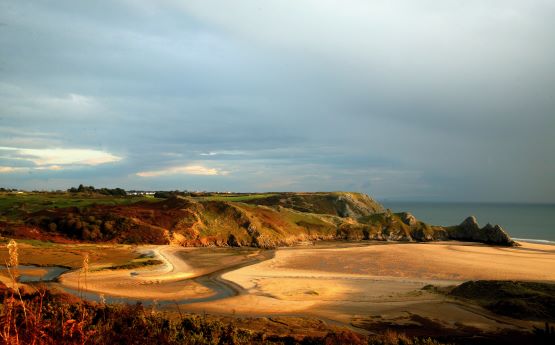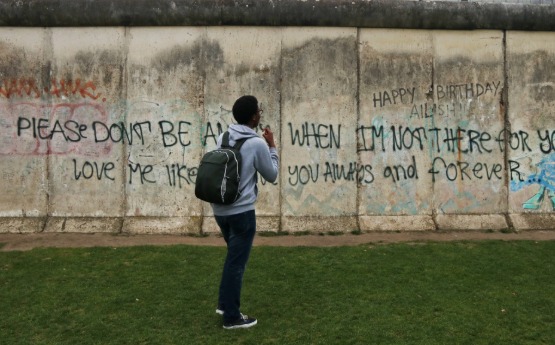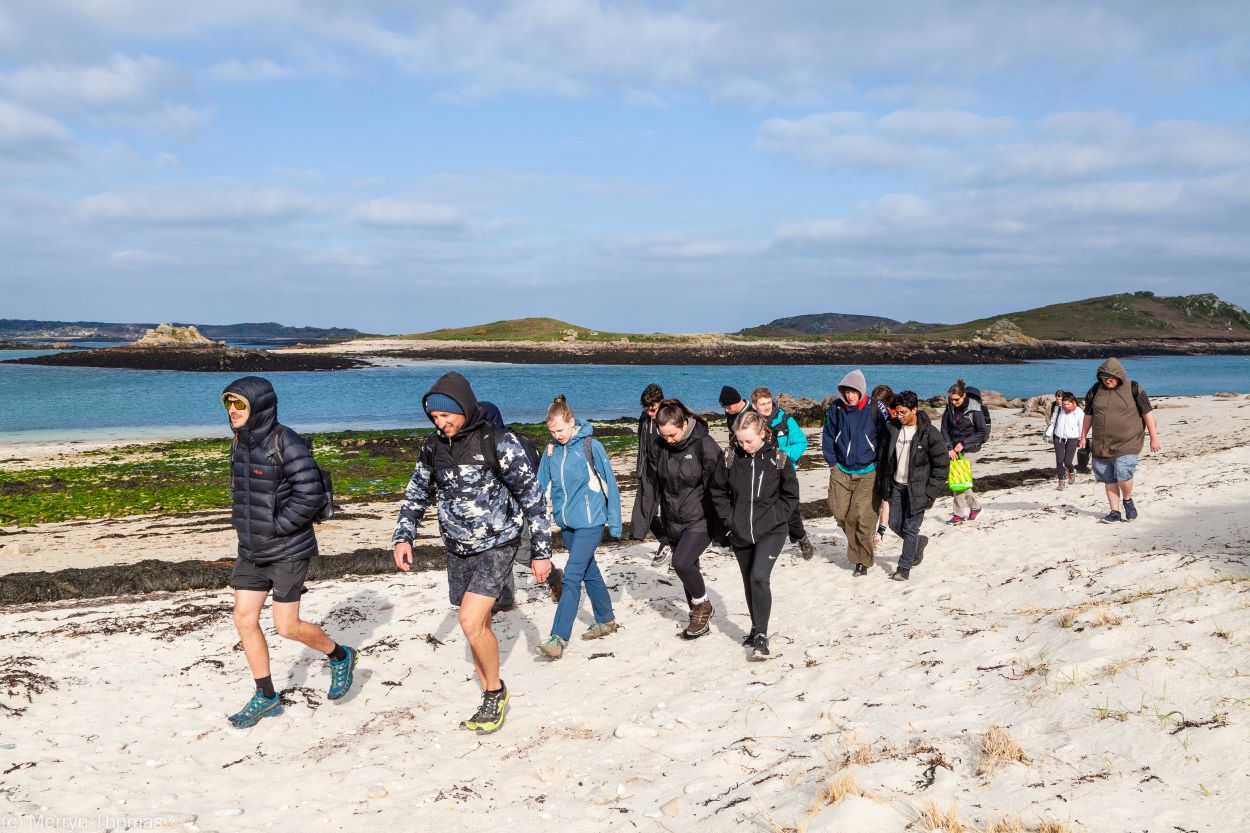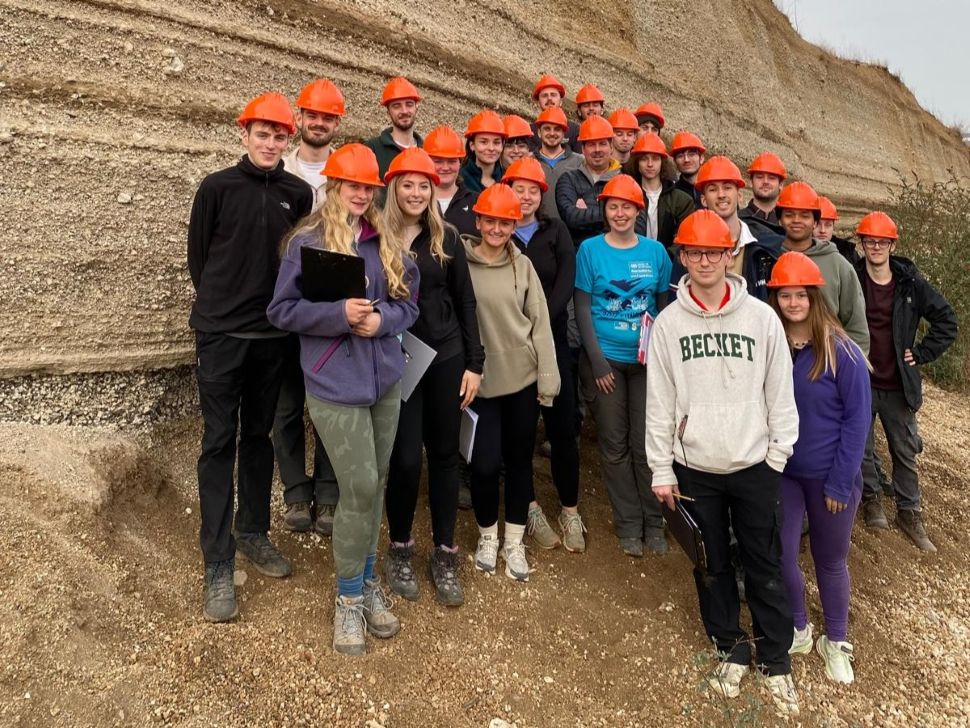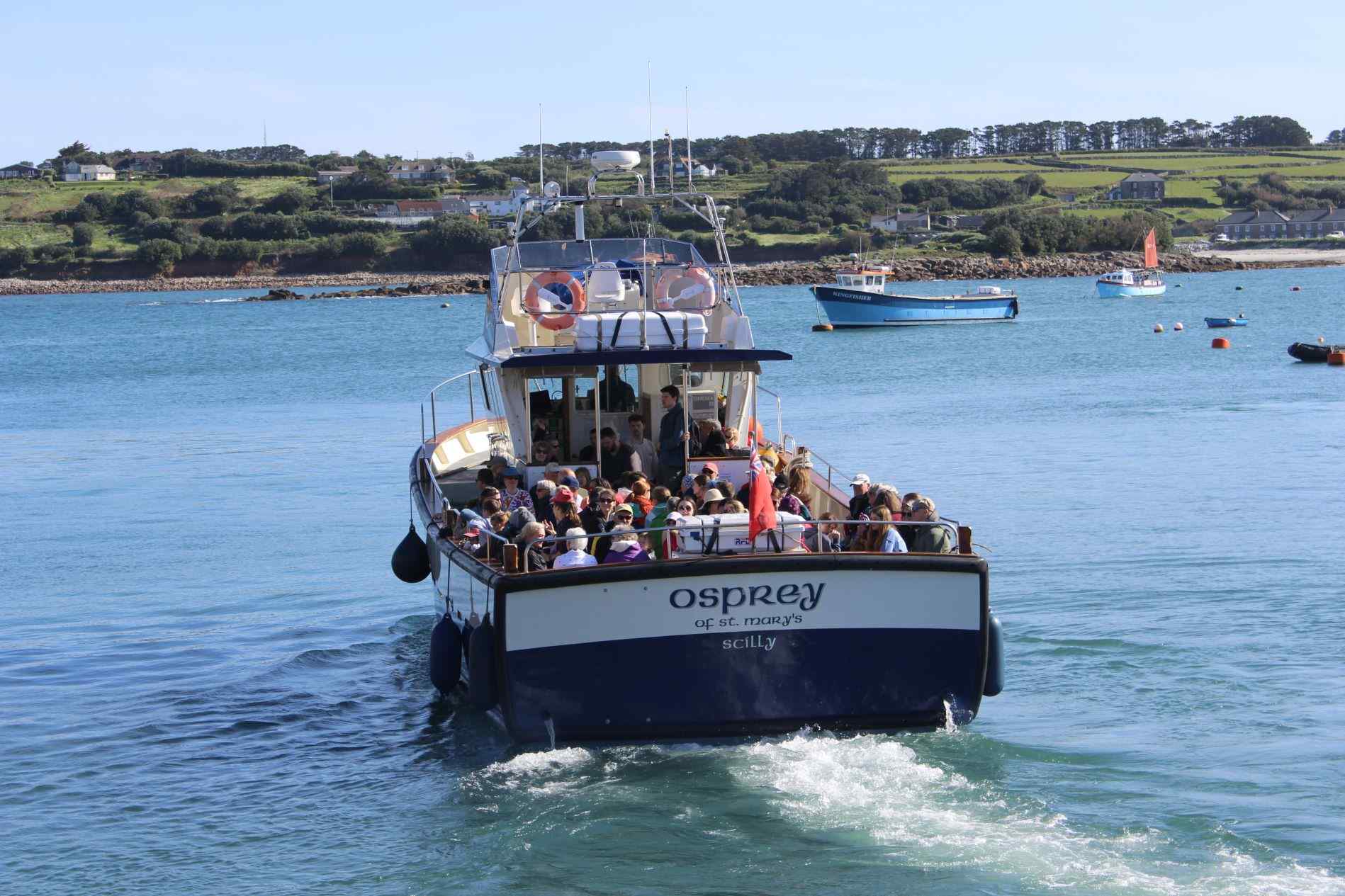Fieldwork is an essential element of a Geography degree. In Swansea, we are extremely fortunate to have beautiful environment on our doorstep in Gower – designated an Area of Outstanding Natural Beauty in 1956. We also have museums and galleries and the recent £1 billion investment in Swansea, as part of the Swansea Bay City Deal.
We travel on international and national field courses. In the past five years, our students have been to Vancouver, Belfast, Berlin, Mallorca, the Indian Himalayas, the Isles of Scilly, the Eifel region in Germany, Iceland and the Isle of Arran.
Typically, in Year 2, students will go on a week-long field course to put into practice different research methods. In Year 3, students are presented with optional field course as part of a more specialist module.
Our students consistently describe the field courses as the best aspects of their time at the Swansea Geography Department.
Three Cliffs Bay
During the first term of Year 1, all students attend a trip to Three Cliffs Bay in the beautiful Gower peninsula. Students observe and learn about topics including evidence of past climate change, fluvial and aeolian geomorphology, rock weathering, land use change, settlement patterns, influence of planning legislation, tourism, and the social construction of nature. This is a great day out in which new students get to know each other.
Berlin
For students on this field trip, observation, thought, reflection, and discussion are perhaps the key elements to a successful experience. Reminders of the city's turbulent 20th-century history include its Holocaust memorial and the Berlin Wall's graffitied remains. Students will explore and evaluate the diverse human geographies of Berlin, also known for its art scene and modern landmarks and discover something of its particular character.
Vancouver
Explore the human and natural wonders of Vancouver and ‘beautiful British Columbia’ on this 14-day field course. Those interested in human geography can study the development of Vancouver’s built environment, ethnic diversity, tourism and film-making, while physical geographers can explore coastal rainforests, the Fraser River delta and learn about avalanches. Students will then take a hike through breath-taking Squamish following the Gold Rush trail, and still have time to take in an ice hockey game, go skiing or bargain-hunting in the malls. A truly unforgettable experience.
Isles of Scilly
Students travel to the breath-taking Isles of Scilly, located just off the coast of Cornwall, on our immersive Climate Emergency course. Students experience the real-life impact of climate change while exploring sea level changes, flood defence, and innovative solutions to environmental challenges. Our itinerary is packed with opportunities to study sustainable transport systems, energy initiatives, and the interconnectedness of food supply chains in a changing world.
Iceland
This field course introduces students to the diverse landscapes of Iceland, through a mix of physical and human geography and earth sciences methods. On this trip, students learn about the challenging landscapes of the Arctic through the lenses of volcanology, glaciation, geothermal power, tourism, finance and politics. Students visit the capital Reykjavík, the south coast of Iceland, and the island of Heimaey in order to understand how people relate to these dynamic landscapes and the magmatic powers that lie beneath the surface.
Eifel, Germany
A visit to the Eifel Volcanic region is included in the optional Year 3 module, Volcanology. Students follow the journey of magma from its production and source inside the Earth, to its eruption at the surface through volcanoes. This field course enables in-situ study of diverse volcanic landforms and products, formed via a wide range of eruptive styles, including effusive and explosive eruptions. Students learn how to observe, measure and interpret volcanic deposits.
Costs
Compulsory field courses are heavily subsidised by the Faculty of Science and Engineering. Other, optional field courses, are not subsidised and students will be expected to pay.
We regularly review our field course costs, to keep costs low. When students have choices between destinations, we ensure there is a ‘low-cost’ option.
There are hardship funds and bursaries available, by way of the Money Advice team https://www.swansea.ac.uk/money-campuslife/live-chat/
Inclusivity
We plan our field courses to be as inclusive and accessible as possible. Students can discuss with staff additional needs and reasonable adjustments as they choose their fieldtrip destination.
We are proud to host a clothing and equipment library in the department, from which students can borrow raincoats or warm fleeces.
We have a code of conduct for all field courses which asks students and staff to treat others on the trip and the communities we visit with dignity and respect.
Our Commitment to the Environment
Our field courses include a mix of national and international destinations, and include a ‘no-fly’ option.
Students following the BSc in Environmental Sciences and the Climate Emergency typically travel by bus and ferry to the Isles of Scilly.
Student Comments on Fieldtrips
‘This trip was truly amazing and I have learned so much about Iceland and creating new friends’
‘The academic balance between human and physical geography was brilliant’
‘The trip was an incredible experience and something I will never forget’

